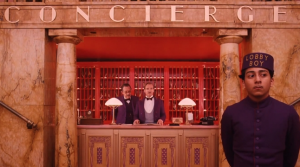-
How to Become an Intellectual is at once a
how-to manual and a glib walk through several thousand years of science and culture, complete with cameo appearances by everyone from Plato and Socrates to Freud and Marie Curie.
Available April 2012 in bookstores, as well as
on-line.
Stefan Zweig and the Grand Budapest Hotel
May 11, 2014
Wes Anderson’s The Grand Budapest Hotel owes a considerable debt (acknowledged in its closing credits) to the author Stefan Zweig and his remarkable portraits of Eastern Europe in the years before World War II. Although Zweig enjoyed immense popularity in the 1930s, his prominence faded in the years following the War. The New York Review of Books features an interesting essay by Anka Muhlstein on his life in exile once the Nazis began their march across Europe, and explores the possible motives behind his eventual suicide.
Drawing parallels between the author’s life and Anderson’s movie, Muhlstein writes:
Of all the characters in the film, it is unexpectedly the concierge—played by Ralph Fiennes in rare form, with a trim little paintbrush mustache, shifty eyes and a supple grace to his movements, comfortable mastery of all languages, a certain latitude in his sexual tastes, and an overall sense of calm broken here and there by glimmers of disquiet—who best evokes Zweig.
There’s much more at the link.





Comments are closed.